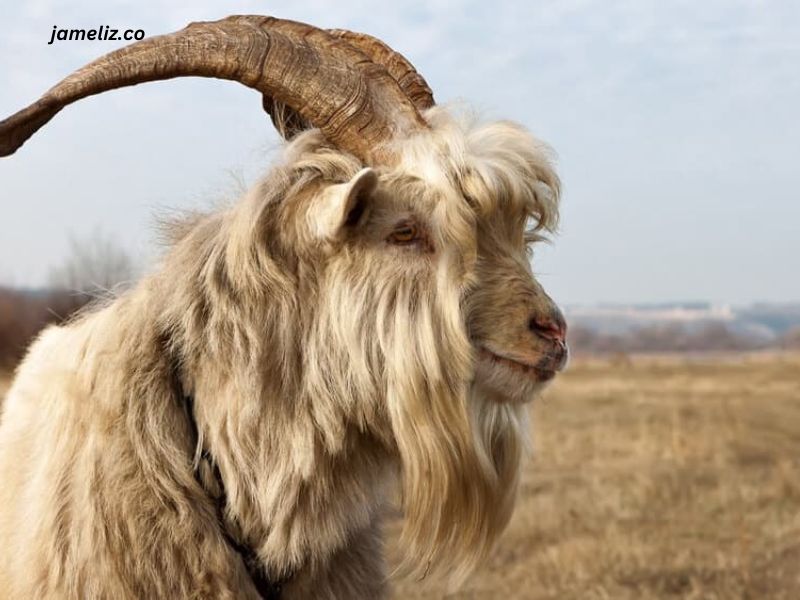Curious about how long goats live? Whether you’re a pet owner, livestock farmer, or simply an animal lover fascinated by these quirky creatures, understanding a goat’s lifespan is essential. Knowing this can help you ensure their well-being, plan for their care, and even deepen your bond with them.
This guide dives into the factors that impact goats’ lifespans, compares the longevity of different breeds, and provides actionable tips to enhance their quality of life. Plus, we’ll sprinkle in real-life stories from goat owners to inspire and inform you.
If you’re new to the world of goats or looking to maximize the lives of your beloved herd, you’re in the right place.
What Determines a Goat’s Lifespan?
Several factors influence how long a goat can live. While genetics and breed are significant, other elements like diet, living conditions, and healthcare play a crucial role. A well-cared-for goat typically lives longer than one that encounters neglect or poor conditions.
Here’s what you need to know about the main drivers of a goat’s lifespan:
1. Genetics and Breed
Some breeds have naturally longer lifespans than others. For instance, dairy goats like Alpines or Nubians may live slightly longer due to selective breeding for quality genetics. However, smaller breeds or those raised primarily as pets, like Nigerian Dwarf goats, tend to be healthier and may live even longer.
Genetics also influence their predisposition to diseases, which ultimately affects their longevity. When choosing a goat, it’s worth researching a breeder’s line to understand common health traits.
2. Diet and Nutrition
Just like humans, goats need a balanced diet to thrive! Proper feeding ensures a longer and healthier life. They require a mix of fresh forage (like alfalfa or hay), grains, minerals, and the occasional treat (they love fruits!).
Lack of proper nutrition can lead to deficiencies, weight problems, and susceptibility to illnesses. Providing free-choice minerals specifically for goats is essential for their well-being.
3. Living Conditions
Environments matter more than you think. Goats are incredibly playful and curious creatures, which means they need sufficient space to roam, shelter from extreme weather, and clean living conditions.
Well-maintained housing—not overcrowded or unsanitary—is critical to keeping them healthy and disease-free. Stress-free goats are happy goats!
4. Healthcare and Regular Checkups
Routine healthcare is a must if you’re aiming for a long goat lifespan. This includes proper vaccination, deworming, and regular checkups by a vet. Goats are prone to conditions like parasite infestations and respiratory illnesses, which require early detection and treatment.
Investing in preventative care today will save lives, time, and money in the long run.
How Long Do Popular Goat Breeds Live?
Wondering about the average lifespan of your goat’s breed? Here’s a breakdown of some common breeds and how long they typically live with proper care.
Nigerian Dwarf Goats
- Average Lifespan: 12–15 years
This popular miniature breed is one of the longest-living goats. Known for their friendly personality and adaptability, Nigerian Dwarfs often thrive as pets or in small homesteads.
Boer Goats
- Average Lifespan: 8–12 years
A common breed for meat production, Boer goats can still live a long life when well-cared-for in non-commercial farming settings.
Nubian Goats
- Average Lifespan: 10–12 years
Their adaptability and large size make Nubians a favorite in dairy farming. While they don’t live as long as Nigerian Dwarfs, proper care ensures their longevity.
Alpine and Saanen Goats
- Average Lifespan: 10–14 years
These dairy-focused breeds tend to live longer under ideal conditions, producing milk for several years before enjoying a peaceful retirement.
Pygmy Goats
- Average Lifespan: 10–15 years
Often kept as adorable little pets, Pygmy goats prove that good things really do come in small (and long-living) packages.
How to Extend Your Goat’s Lifespan
You’ve gotten a glimpse of how long goats can live, but how do you help your own goats reach the upper end of that range? The secrets often lie in a combination of effort and love.
1. Prioritize Proper Nutrition
Goats need access to fresh hay, pasture, clean water, and goat-specific minerals. Mix up their diet with occasional treats like fruits and vegetables (but avoid toxic plants like rhododendrons).
2. Keep Their Environment Clean
Sanitation is key to avoiding infections and diseases. Regularly clean their living area and provide sufficient bedding. Ensure their shelter is warm, especially during cold seasons, and provides shade in the summer.
3. Foster Social Interaction
Goats are herd animals and thrive on companionship. Isolating a goat can lead to stress and health problems, so always keep them in pairs or groups.
4. Schedule Routine Vet Care
Schedule vaccinations, conduct monthly hoof trims, and check for parasites. Prevention is always better than cure!
5. Provide Mental Stimulation
Goats love to climb, play, and explore. Enrich their living environment with safe climbing structures, toys, and even challenges like foraging puzzles. A happy goat is a healthy goat!
Stories of Goats Who Lived Happy, Long Lives
Meet Clover, a 16-year-old Nigerian Dwarf goat owned by a family in Virginia. With a meticulous diet plan, weekly brushings, and a cozy barn, Clover thrived well past the breed’s average lifespan.
Or take Buddy, a Boer goat raised by an amateur farmer in Texas. His secret to longevity? Daily walks around the farm and apple slices as a treat. He lived happily to the age of 14.
Stories like these reflect the deep care and attention goat owners give, proving that the love you pour into your goats has a significant impact on their lifespan.
A Lifelong Commitment to Your Goats
Owning a goat means committing to their happiness, health, and overall quality of life. From choosing the right breed to ensuring a balanced diet and proper healthcare, small actions can significantly impact your goats’ longevity.
Want to share your own goat tales? Join our thriving community of goat lovers and farmers to trade tips, ask questions, and connect with like-minded enthusiasts. Whether you’re a first-time owner or a seasoned farmer, we’d love to hear about your experience in raising happy, healthy goats.

